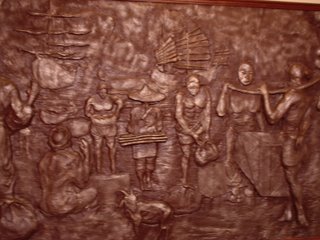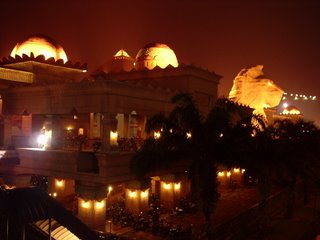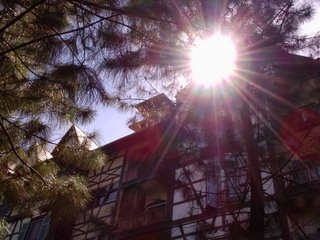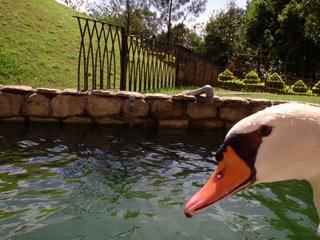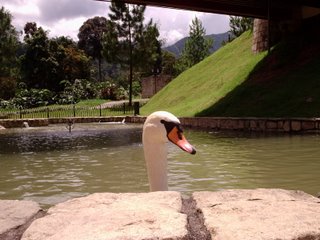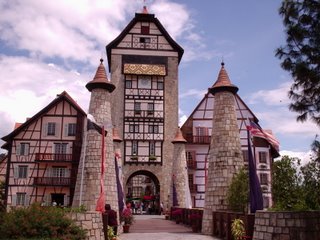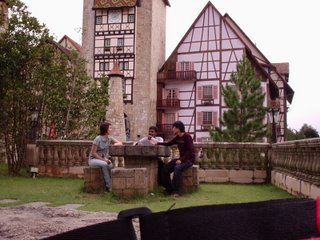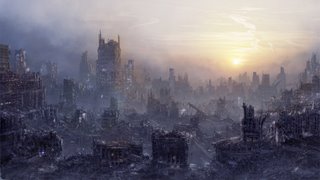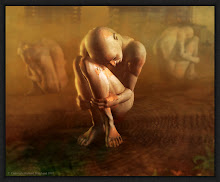There is precious little time given to each one of us who inhabit this earth; precious little time to make use of, to find out what everything is really about. It is as if, from the very moment we are born, life becomes a scramble towards some unknown destination, and we have only our experiences and judgment to act as beacons of guidance. I am no different. For as long as I can remember, life has been this huge search for meaning and purpose. It can be so frightening to even begin to imagine that there is no meaning or answer to this existence. Something within is always there, saying that meaning can be found, that it truly is. It may be intangible and seemingly irrational, yet it is as sure as the ground upon which we stand upon.
It touches me something deep when I read the writings of R. A. Salvatore, especially through the eyes of Drizzt Do’Urden; a fantasy character from a fantasy world that, strangely enough, has so much in common with our own reality. His story, told through many books, is the journal of the lessons that a soul encounters through his life. Salvatore always starts his stories with an intimate look into Drizzt’s thoughts, and throughout the book, Drizzt tells us about the lessons he learns and the new meanings he finds from whatever challenge or adventure or experience he might have.
Drizzt grew up in a world of darkness; among the most corrupt, vicious and wicked people of his world. It was a society that was fueled by anarchy and intrigue, one that follows a warped and twisted religious cause. Deception, lies and violence are the cornerstones of those who live in that dark world, and any who tries to change or is simply different by no fault of their own are quickly eradicated. Drizzt grew up being fed lies and twisted visions of his family. He was trained as a fighter and quickly became the best of his class. Yet, young Drizzt was quick to discover that he would not fit into this world. Deep within, Drizzt found a voice that screamed at him that what he was witnessing around him was not right. When he tried to stand up against those wrongs, he found only the merciless whipping of his elders.
He found his salvation in the form of his father. Drizzt discovered that he was not alone in his struggle. His father shared the same sense of honor and ethics that was passed on to his son. He allowed this side of Drizzt to grow, while affording enough of a protective screen to keep others who were not so tolerant from knowing the truth. Unlike his father, Drizzt could not come to terms with the atrocities his people were responsible for, and soon realized that he had to leave his ‘home’ or lose hope completely. His father’s death proved the last straw as he rebelled against his evil family and the rest of the evil race and escaped that world.
Drizzt Do’Urden found a new world outside on the surface. He found new friends, people who proved to him that he was not alone at all. He discovered the new meanings that life could bring, from the joy of friendship and love to the simple appreciation of the beauty of nature. All the while, Drizzt never forgot his past, never for a moment let go of the lessons that he had learned. More importantly, he always strived to find the best ways to utilize those lessons, through an intense scrutiny of his values and principles, never being afraid to criticize himself. This self-examination allowed him to find better ways to deal with the challenges he faced, and ultimately, helped him find peace and inner calm in a world of adversity and instability. He speaks, among many other things, of courage and what true courage really is. At one time, after the death of a dear friend, Drizzt leaves the ones he loves and returns to his dark home, thinking to put an end to the trouble that his people have been bringing upon the peaceful people, even if it meant he had to die. He initially thinks that his actions are driven by courage, but changes his mind because he realizes that the only reason he is doing it is due to the belief that he has nothing to lose. He is humbled when he discovers that his dearest friend, a young human woman, comes in search for him, fully knowing that she might never return to see sunlight ever again. Drizzt realizes true courage through her then, the willingness to risk all for another, to overcome fear and find determination, knowing that someone dear might be in trouble.
He willingly admits his mistake, and accepts this lesson as another building block in his life. He vows to not let his dear friend down and discovers a purer courage which he uses to help her find their way back to their home on the surface.
Drizzt has something that we all desperately need; the ability to look at ourselves. His willingness to openly question and study himself, his motivations, his intent and identity kept his eyes clear and true. He is always so careful and considerate in all his actions, always putting those he cared about first, and always looking to preserve and protect that which gives life purity and true beauty. We need that ability and we need it badly; each and every one of us. We need it to help us get through the life so that we do not stray and lose sight of ourselves and become something regrettable, something lesser than what we started out as.
I have been trying very hard to nurture this ability. Pride, ego, and pretensions are the biggest obstacles from being able to be honest with myself. It is not easy, having grown up in a world where we must always try to appear strong and be righteous. It is not easy, having been told to stick firm to baseless faiths and questionable values. I have come to learn, though, that it is a necessary effort to be able to willingly tear down our personalities to the smallest, core pieces and look at them as closely as possible. I have been trying hard to question everything, my values, my principles, and my identity and so on, in hopes that I might be able to sort through the rabble and find a purer light. It has not been easy by any means. Introspection can be frightening; terrifying even. Sometimes, we find hidden aspects of ourselves that we wish never to have found. We can hold on to a belief for so long a time, thinking for all its worth that it is right, then one day, in the cold light of truth, we find out that we have been living a lie.
That is how I felt when I discovered the truth of what we call ‘race’ and ‘religion’. When once I might have thought of race as an aspect of identity and a source of pride, now I only need to remind myself of a simple fact; cut us all, and we bleed the same. The same applies to religion. We have, for so long, allowed the words of individuals we have never met, who lived long ago, determine our faiths. So strongly do we hold on to them that we will even willingly kill those unbelievers who question us? I used to be strongly religious, right up to the time when I discovered that faith and religion are two different and entirely separate things. Faith is personal, intimate and forms the base of identity. Religion is another tool of social control that makes us do things for no better reason than to please others who claim to know ‘better’ than us. True faith will tell us to question all things and take responsibility of our own actions and the consequences that result; religion creates a pretense that we are just pawns, completely out of control of our lives so that whatever we do, as long as it is acceptable by the dominating group, is perfectly alright.
For us to come to terms with who we are and what we are about, we need to be able to face ourselves. We need to take responsibility, first and foremost, of everything we do. Self-doubt is not a weakness; it might be the only thing that will keep us from making mistakes. The more honest and open we are to ourselves, the more likely we are to find the right path to follow. For me, this continuing effort has allowed me to find what truly matters in life. This difficult journey has made me realize that the most important things in life are also the simplest. So far, I have learned that humility through the acceptance that no one is greater than me but also that I am no greater than anyone else. I have learned that it is important to put others before myself, even if others seem to be in the wrong at first. Just as Drizzt has found his meaning and purpose, so too should we try to find the truth within ourselves. The key, without question, without doubt, is being completely honest to ourselves and finding the courage to look deeply and closely at what makes us tick.
“Know Thyself” - Socrates
